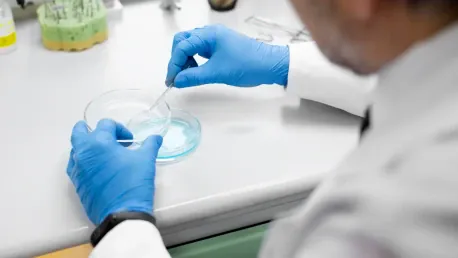In a groundbreaking development, QIMR Berghofer has made significant strides in combating severe viral infections in immunocompromised patients through their pioneering cell therapy. This innovative treatment has proven effective in 46 out of 71 patients, resulting in a notable 65% success rate. Despite many patients being at advanced stages of their diseases and having undergone numerous prior treatments, this therapy’s impact has been remarkable. Professors Khanna and Neller assert that the potential for earlier intervention could drastically improve these success rates, shedding light on the importance of timely medical care in critical conditions.
A Revolutionary Approach to Treating Severe Viral Infections
Efficacy in Advanced Disease Stages
The effectiveness of QIMR Berghofer’s cell therapy in treating advanced-stage diseases highlights the therapy’s potent capabilities. Many patients who have benefitted from this treatment were already dealing with late-stage viral infections, often resistant to conventional therapies. These viruses included some of the most common yet deadly, such as Epstein-Barr virus, cytomegalovirus, BK polyomavirus, John Cunningham virus, and adenovirus.
The therapy’s success in these complex cases underscores its potential as a game-changer in medical treatment, particularly when traditional routes fail. This is crucial as immunocompromised patients are often left with limited options, and viable alternatives such as this could shift the landscape of medical care. By specifically targeting these prevalent and life-threatening viruses, QIMR Berghofer’s cell therapy has offered new hope to this vulnerable patient population, potentially paving the way for even broader applications in the future.
Remarkable Case Study: Koby’s Rapid Recovery
One of the most notable success stories from QIMR Berghofer’s cellular therapy program is that of Koby, an eight-year-old boy from Perth. Koby’s condition had severely deteriorated following a bone marrow transplant, when he contracted a harsh adenovirus infection. Despite the severity of his situation, the introduction of cell therapy led to a dramatic and rapid improvement in his health. Dr. Shanti Ramachandran from Perth Children’s Hospital reported that Koby was discharged from the hospital significantly faster than anticipated, demonstrating the effectiveness and potential of this groundbreaking therapy.
Koby’s rapid recovery not only underscores the immediate benefits of this therapy but also offers a glimpse into its future potential. His case highlights how quickly and effectively the therapy can operate even in young patients, whose outcomes are often more precarious due to their age and compromised immune systems. This success story can serve as a powerful testament to the life-saving possibilities of QIMR Berghofer’s cell therapy, inspiring further investment and research in this promising field.
Moving Towards Broader Applications
The Path to Approval
Cellular therapy, particularly adoptive immunotherapy, has been heralded as a revolutionary treatment option not only for severe viral infections but also for cancer, autoimmune diseases, and infectious diseases. Currently, this innovative therapy awaits approval from the Therapeutic Goods Administration (TGA) for the treatment of severe viral infections in immunocompromised individuals. Despite this, QIMR Berghofer remains the sole provider of this therapy in Australia, offering it under compassionate use and manufacturing it at their Q-Gen Cell Therapeutics facility in Brisbane.
The path to broader application and approval involves critical steps, including randomized clinical trials that can provide essential data for TGA consideration. Professor Khanna emphasizes the need for dedicated funding to sustain this groundbreaking program and to carry out these necessary trials. Such trials are not only imperative for collecting data but also for validating the effectiveness and safety of the therapy on a larger scale, ultimately making it accessible to more patients in need across the country.
Call for Continued Support
QIMR Berghofer has achieved significant advancements in fighting severe viral infections in immunocompromised patients with their pioneering cell therapy. This cutting-edge treatment has demonstrated efficacy in 46 out of 71 patients, resulting in an impressive 65% success rate. Remarkably, many of these patients were in advanced stages of their illnesses and had undergone numerous previous treatments. The successful outcomes of this therapy suggest considerable potential. Professors Khanna and Neller emphasize that earlier intervention with this therapy could substantially boost these success rates, highlighting the crucial role of timely medical care in managing critical conditions. The research underscores the importance of innovative medical approaches for individuals who are particularly vulnerable due to compromised immune systems. This breakthrough provides hope for better management and treatment of severe viral infections, potentially transforming the standard care for immunocompromised patients and significantly improving their quality of life.









